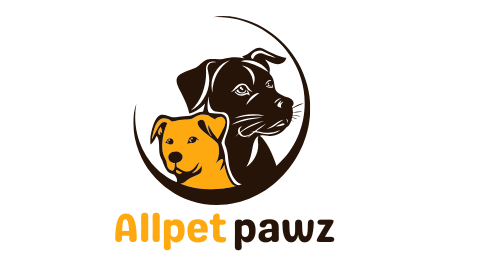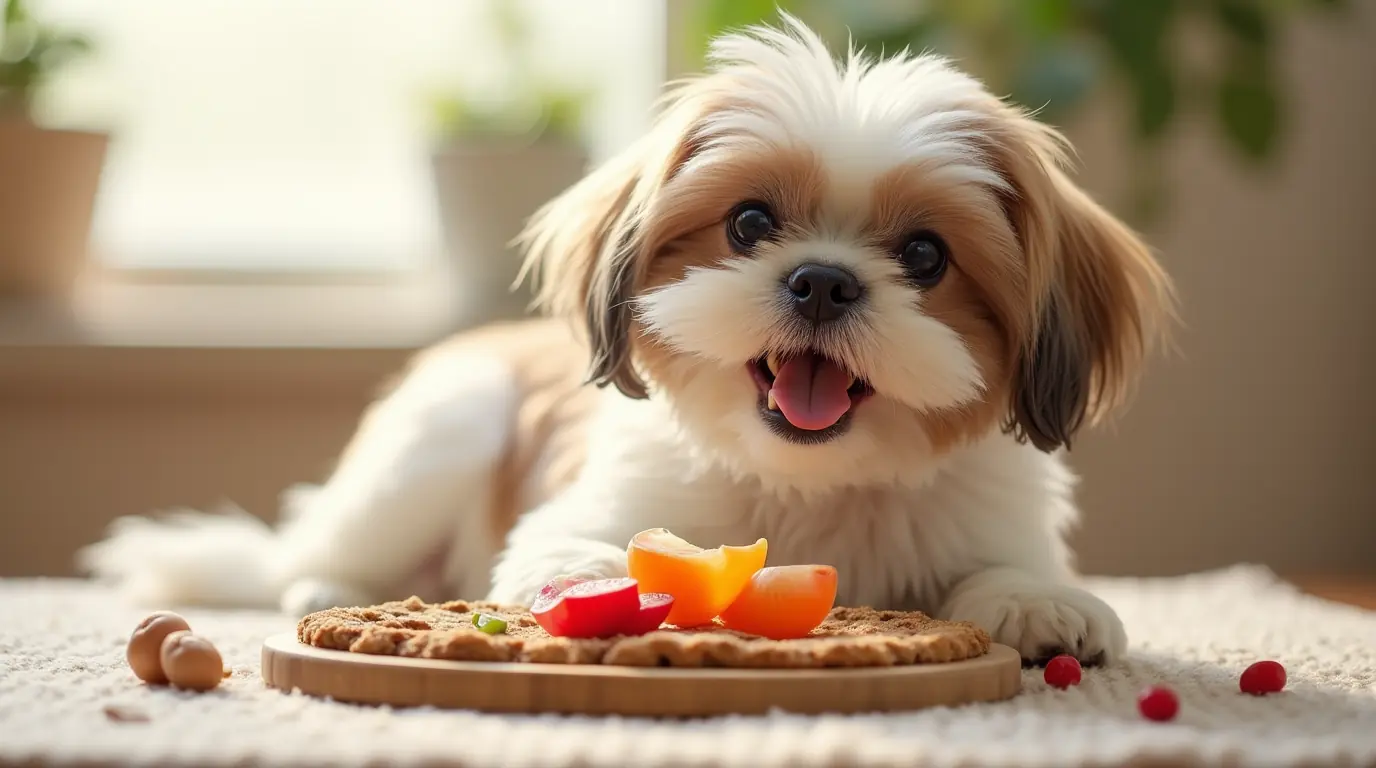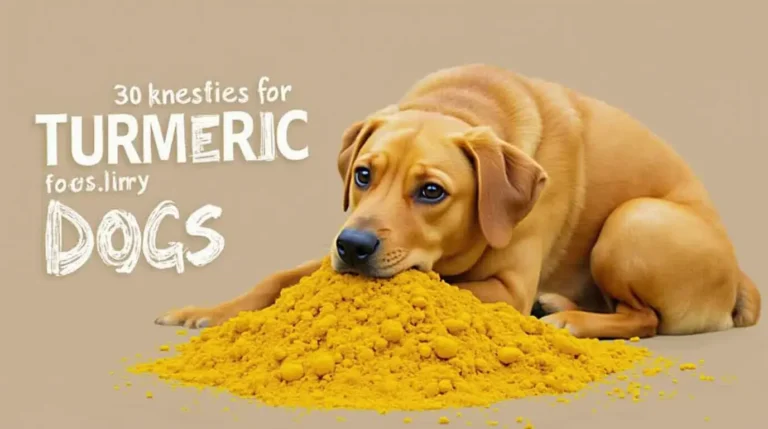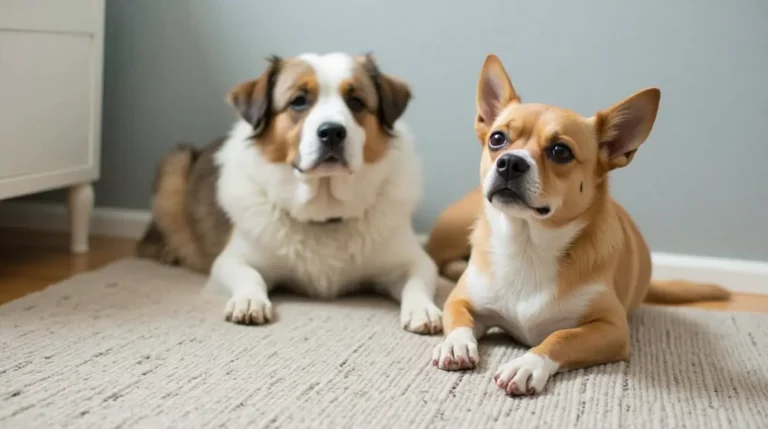Shih Tzu Diet: These 10 Foods Could Be Fatal for Your Dog – Protect Them Now!
Shih Tzu Diet: The Essential Guide to What Foods Your Dog Should Avoid
As a Shih Tzu owner, one of the most important aspects of maintaining your dog’s health is ensuring they have a balanced and nutritious Shih Tzu diet. However, it’s equally important to know which foods are harmful and can lead to serious health problems for your furry friend. While some foods are perfectly safe for humans, many can be toxic to dogs—especially small breeds like the Shih Tzu.
In this guide, we’ll explore the most common foods to avoid in your Shih Tzu diet, explain why they’re dangerous, and offer tips on how to keep your dog safe and healthy.
Why the Shih Tzu Diet Matters
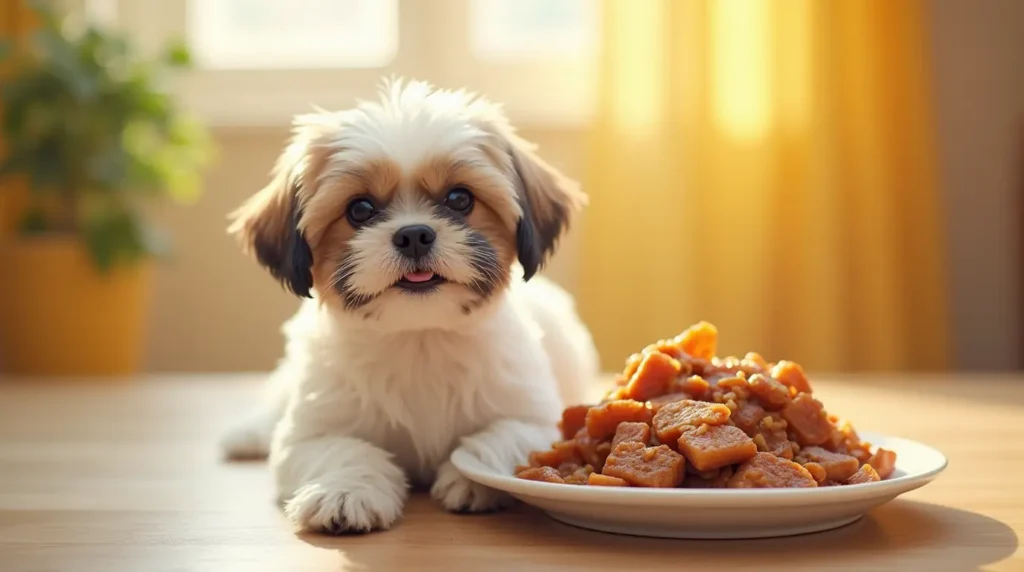
The Shih Tzu diet is crucial because this small, affectionate dog has a sensitive stomach and is more susceptible to certain foods than other breeds. Their small size means they need specific types of nutrients in smaller portions, and their digestive system isn’t built to handle certain substances.
For example, foods like chocolate or grapes may seem harmless, but they can cause severe damage to a Shih Tzu’s kidneys or digestive organs. Because of their small size, Shih Tzu can’t handle toxins the way larger dogs or humans can, which is why a carefully planned Shih Tzu diet is essential to keep them safe.
Related: Shih Tzu Dog Price: Why Owning a Shih Tzu Is Totally Worth the Investment
Top 10 Foods to Avoid in Your Shih Tzu’s Diet
Below, we’ll walk you through the top 10 foods that should never be a part of your Shih Tzu’s diet. Understanding these risks will help ensure your Shih Tzu remains healthy and free from food-related health problems.
1. Chocolate: A Silent Poison for Dogs
Why Is Chocolate Dangerous for Shih Tzus?
Chocolate contains a substance called theobromine, which is toxic to dogs. While humans can metabolize theobromine safely, dogs, particularly small breeds like Shih Tzus, cannot. Even small amounts of chocolate can lead to serious side effects like vomiting, diarrhea, seizures, and in some cases, death.
Dark chocolate is the most dangerous because it contains much higher levels of theobromine compared to milk chocolate. Even a small square of dark chocolate can be lethal for your dog.
What to Do if Your Shih Tzu Eats Chocolate:
If you suspect your Shih Tzu has eaten chocolate, contact your veterinarian immediately. They may suggest inducing vomiting or other treatments to neutralize the toxins.
2. Grapes and Raisins: A Hidden Danger
What Makes Grapes and Raisins Toxic to Dogs?
Grapes and raisins are known to cause acute kidney failure in dogs, although the exact substance that causes the poisoning remains unidentified. Even a small amount of grapes or raisins can result in kidney damage and lead to symptoms like vomiting, lethargy, and loss of appetite.
Signs of Toxicity:
- Vomiting and diarrhea
- Lethargy and weakness
- Loss of appetite and dehydration
It’s crucial to keep grapes and raisins out of your Shih Tzu’s reach. If your dog consumes even a small amount, contact your vet immediately.
3. Onions and Garlic: Harmful Even in Small Amounts
Why Are Onions and Garlic Dangerous?
Both onions and garlic contain thiosulfates, which can damage red blood cells and lead to hemolytic anemia (a condition where the red blood cells are destroyed faster than they can be produced). Even small amounts of onions or garlic—whether raw, cooked, or powdered—can harm your dog.
Symptoms to Watch For:
- Weakness or lethargy
- Reduced appetite
- Pale gums and vomiting
While it’s a common belief that small amounts of cooked onions won’t harm dogs, they can still cause long-term damage to their red blood cells.
4. Avocados: Safe for Humans, Dangerous for Dogs
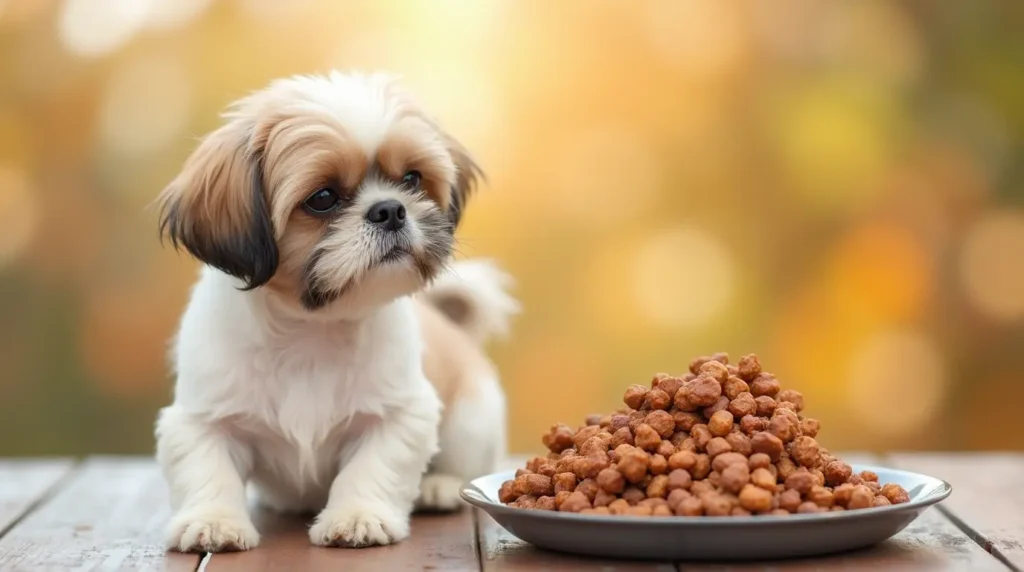
Why Should You Avoid Avocados?
Avocados contain persin, a substance that is harmless to humans but toxic to dogs. Persin can cause vomiting and diarrhea in Shih Tzus, and the large pit in an avocado also poses a choking hazard.
What to Watch For:
- Vomiting
- Diarrhea
- Abdominal pain
If your Shih Tzu accidentally consumes avocado, monitor them closely for signs of distress and seek veterinary help if necessary.
5. Alcohol: A Major Risk for Shih Tzus
Why Is Alcohol So Dangerous to Dogs?
Even a small amount of alcohol can have a significant impact on a dog’s health. Alcohol is a central nervous system depressant that can cause respiratory failure, coma, and even death in dogs. Shih Tzus, in particular, are more sensitive to alcohol due to their small size.
Symptoms of Alcohol Poisoning:
- Vomiting and diarrhea
- Loss of coordination
- Lethargy or coma
Never give your dog any alcoholic beverages or foods containing alcohol. If you suspect your Shih Tzu has ingested alcohol, contact your vet immediately.
6. Caffeine: A Dangerous Stimulant
Why Is Caffeine Harmful to Shih Tzus?
Caffeine is a stimulant that can cause a variety of health problems in dogs, including hyperactivity, tremors, and heart arrhythmias. In severe cases, it can even lead to seizures or death.
Sources of Caffeine to Avoid:
- Coffee
- Tea
- Energy drinks
- Chocolate
Symptoms of Caffeine Poisoning:
- Hyperactivity or restlessness
- Tremors and seizures
- Rapid heart rate
If your Shih Tzu has consumed caffeine, seek immediate veterinary care.
7. Xylitol: A Dangerous Sugar Substitute
What Is Xylitol and Why Is It Dangerous?
Xylitol is a sugar substitute commonly found in sugar-free gum, candies, baked goods, and some peanut butter brands. While safe for humans, xylitol can cause insulin release in dogs, leading to hypoglycemia (low blood sugar), seizures, and liver failure.
Symptoms of Xylitol Poisoning:
- Vomiting
- Loss of coordination
- Seizures
- Lethargy
If your Shih Tzu consumes something containing xylitol, seek emergency veterinary treatment immediately.
8. Raw Meat and Eggs: Risk of Bacterial Contamination
The Danger of Raw Foods:
Raw meat and eggs can be contaminated with harmful bacteria like Salmonella or E. coli, which can lead to gastrointestinal distress, vomiting, diarrhea, and dehydration. Additionally, raw eggs contain avidin, which can interfere with biotin absorption in your dog.
Symptoms of Bacterial Infections:
- Vomiting
- Diarrhea
- Abdominal pain
If your Shih Tzu eats raw food, monitor them for any signs of illness and consult your vet if necessary.
9. Dairy: A Digestive Nightmare for Many Dogs
Why Dairy Can Be Problematic:
Many dogs, including Shih Tzus, are lactose intolerant, meaning they cannot properly digest dairy products. Consuming dairy can lead to gas, bloating, diarrhea, and stomach cramps.
Symptoms of Dairy Intolerance:
- Diarrhea
- Stomach bloating
- Excessive gas
If you want to treat your Shih Tzu, consider using lactose-free dairy products or non-dairy alternatives instead.
10. High-Fat Foods: A Recipe for Pancreatitis
Why High-Fat Foods Are Harmful:
High-fat foods can trigger pancreatitis, a painful condition in which the pancreas becomes inflamed. Fatty foods also contribute to obesity, which is a concern for Shih Tzus, as they are prone to weight gain.
Foods to Avoid:
- Fatty meats
- Fried foods
- Excessive oils and fatty treats
Symptoms of Pancreatitis:
- Vomiting and diarrhea
- Loss of appetite
- Abdominal pain
The Best Foods for Shih Tzus

After discussing the foods to avoid, let’s focus on the best choices for your Shih Tzu’s diet to keep them healthy and happy.
1. High-Quality Dog Food
Look for dog food designed specifically for small breeds, which contains high-quality protein, healthy fats, and essential vitamins. A balanced diet is crucial for Shih Tzus to maintain a healthy weight and avoid obesity.
2. Lean Meats
Lean meats like chicken, turkey, and beef are excellent sources of protein for your Shih Tzu. Avoid fatty cuts of meat, which can contribute to obesity and pancreatitis.
3. Safe Vegetables
Vegetables like carrots, green beans, and peas are excellent additions to your Shih Tzu’s diet. These vegetables provide essential vitamins and fiber, helping to support their digestive health.
4. Healthy Treats
Look for low-calorie treats that are specifically designed for small dogs. Opt for treats with natural ingredients, such as sweet potatoes, to provide an extra source of fiber.
Conclusion: The Key to a Healthy Shih Tzu Diet
Feeding your Shih Tzu the right foods and avoiding harmful substances is crucial for their health and well-being. A balanced, nutritious Shih Tzu diet is essential to preventing health issues such as obesity, pancreatitis, and kidney failure.
By being mindful of the foods your Shih Tzu should avoid and focusing on high-quality, safe ingredients, you can ensure your dog stays healthy and happy for years to come.
Call to Action
If you found this article helpful, share it with fellow Shih Tzu owners and spread the word! For more expert tips on dog nutrition, health, and care, subscribe to our newsletter and get the latest articles straight to your inbox!
Frequently Asked Questions (FAQs)
1. Can Shih Tzus eat peanut butter?
Yes, Shih Tzus can safely eat peanut butter, but only in moderation. Make sure the peanut butter is unsweetened and free of xylitol, as xylitol is extremely toxic to dogs. Peanut butter can be a good source of protein and healthy fats, but it should be used as an occasional treat.
2. What should I do if my Shih Tzu eats chocolate?
Chocolate is toxic to dogs, especially small breeds like Shih Tzus. If you suspect your dog has eaten chocolate, contact your veterinarian immediately. The vet may induce vomiting or administer activated charcoal to absorb the toxins. Dark chocolate is particularly dangerous, so be sure to mention the type of chocolate your dog consumes.
3. Can Shih Tzus eat carrots?
Yes, carrots are safe and healthy for Shih Tzus. They are rich in vitamins and fiber, making them an excellent low-calorie snack. Carrots can also help improve your dog’s dental health by reducing plaque buildup. Just be sure to cut them into small pieces to prevent choking.
4. Is it safe to feed my Shih Tzu homemade food?
You can feed your Shih Tzu homemade food, but you need to be cautious about toxic ingredients. Avoid foods like onions, garlic, chocolate, grapes, and certain spices. It’s also important to balance the diet with adequate protein, fats, and nutrients. Consulting your vet before making homemade meals is a good idea to ensure your dog gets the proper nutrition.
5. How do I know if my Shih Tzu has eaten something toxic?
If your Shih Tzu consumes something harmful, you may notice symptoms like vomiting, diarrhea, lethargy, or loss of appetite. In more severe cases, your dog might experience seizures, difficulty breathing, or even collapse. If you observe any of these signs, contact your veterinarian immediately.
6. Can Shih Tzus eat apples?
Yes, apples are safe for Shih Tzus as long as you remove the seeds. Apple seeds contain cyanide, which is toxic to dogs in large quantities. Apples are a great source of fiber and vitamins, but be sure to slice them into small pieces to avoid any choking hazard.
7. Are dairy products safe for Shih Tzus?
Many Shih Tzus are lactose intolerant, meaning they cannot digest dairy properly. Feeding your dog dairy products can result in gas, bloating, and diarrhea. If you’d like to give your Shih Tzu a treat, consider lactose-free options like yogurt or non-dairy alternatives.
8. How can I tell if my Shih Tzu is lactose intolerant?
If your Shih Tzu experiences digestive upset, such as diarrhea, vomiting, or excessive gas after eating dairy products, they may be lactose intolerant. If you suspect your dog has lactose intolerance, it’s best to avoid dairy and consult your vet for further guidance.
9. Can Shih Tzus eat bananas?
Yes, Shih Tzus can eat bananas in moderation. Bananas are a healthy source of potassium, fiber, and vitamins. However, because bananas are high in sugar, they should only be offered as an occasional treat. Make sure to slice the banana into small pieces to prevent choking.
10. Are there any fruits Shih Tzus should avoid?
While some fruits are safe for Shih Tzus, there are a few fruits that can be harmful:
- Grapes and raisins: Can cause kidney failure.
- Cherries: Contain cyanide-like compounds in the pits.
- Citrus fruits (like oranges or lemons): Can cause digestive upset.
Always do research on fruits before offering them to your Shih Tzu and avoid any seeds or pits that could be harmful.
11. What are the signs of pancreatitis in Shih Tzus?
Pancreatitis is an inflammation of the pancreas, and Shih Tzus are particularly susceptible to this condition due to their tendency to gain weight. Symptoms of pancreatitis include:
- Vomiting
- Abdominal pain (your dog may arch their back or show discomfort when touched)
- Loss of appetite
- Lethargy
If you notice these signs, seek immediate veterinary care.
12. Can Shih Tzus eat eggs?
Shih Tzus can eat eggs, but it’s better to cook them to reduce the risk of bacterial contamination from Salmonella. Eggs are an excellent source of protein and amino acids, which can be beneficial for your dog’s health. However, avoid seasoning or adding salt to the eggs.
13. How much should I feed my Shih Tzu?
The amount of food your Shih Tzu needs depends on their age, weight, and activity level. On average, a healthy adult Shih Tzu requires around 1/2 to 1 cup of high-quality dog food per day, divided into two meals. Consult your vet for a more tailored feeding plan based on your dog’s specific needs.
14. Is it okay to feed my Shih Tzu table scraps?
Feeding your Shih Tzu table scraps is generally not recommended. Many human foods contain spices, fats, and other ingredients that are harmful to dogs. Stick to dog-safe treats and foods to ensure your Shih Tzu’s health.
15. How do I transition my Shih Tzu to a new diet?
When switching your Shih Tzu to a new diet, it’s important to transition gradually to avoid upsetting your stomach. Start by mixing a small amount of the new food with the old food, gradually increasing the proportion of the new food over the course of a week. If your dog experiences digestive issues during the transition, consult your vet.
Why Proper Diet Matters for Your Shih Tzu
Maintaining the right diet is essential to ensuring your Shih Tzu’s overall health and longevity. Feeding your Shih Tzu healthy foods and avoiding harmful substances can help prevent a range of health issues, including obesity, kidney failure, and digestive problems. Always consult your vet before making significant changes to your dog’s diet, and be aware of any ingredients that could be harmful.
Call to Action
If you found this article helpful, don’t forget to share it with other Shih Tzu owners to help them keep their furry friends safe and healthy! For more expert tips on Shih Tzu nutrition and dog care, subscribe to our newsletter and stay updated with the latest articles.
